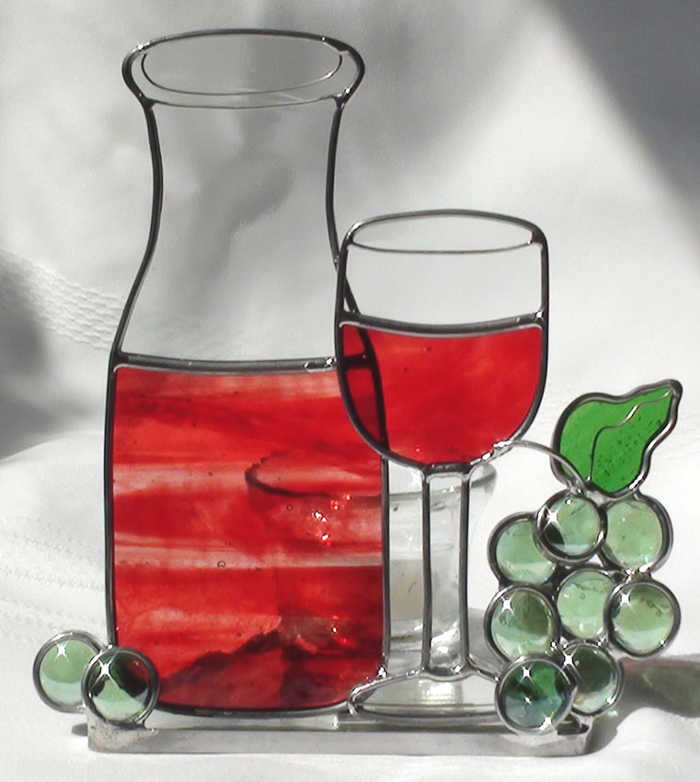FWP:
SETS == EXCLAMATION
EYES {3,1}
WINE: {49,1}
The first line sounds like a vision of someone on his deathbed: he can no longer move, only his eyelids flicker. We anticipate something in the second line about how he's nearly dead, and is taking his last reflective look at the world; or how the beloved does or doesn't, or might or might not, come to his bedside. We don't even know whether the speaker is describing his own condition, or observing somebody else's. And under mushairah performance conditions, we're of course kept in suspense for as long as conveniently possible.
Then the second line provides a lively new twist: the speaker's only concern is to have the wineglass and wine flagon left where they are, so he can continue to enjoy the sight of them. We thus realize that if he's indeed dying, his last wish is for his fading vision to dwell, to the very end, on the wineglass and flagon. But of course we realize now that he may not be dying at all, but may simply be 'dead' drunk, and seeking to prolong the pleasure of his intoxication. We can-- and are obliged to-- imagine for ourselves exactly what the vision of the wineglass and flagon might mean to the speaker.
And what an intense vision it is! The power of the wineglass
and flagon is such that there's no need to actually drink: the speaker's 'life'
(literally 'breath') is in his eyes in any case. The power of the vision may
be a reminiscent one: his eyes want to linger on the source of so much pleasure.
At the least, wine has offered him relief from pain; and at the most, a Sufistic
intoxication with the presence of the True Beloved. Wine is also performance-enhancing
for a poet, as in {208,7}-- if one drinks it, and
perhaps also if one merely gazes upon it. And of course,
merely holding a wineglass in one's hand can be 'life-increasing' in an almost
literal way, as in {111,13}. To my mind this verse is far richer and more enjoyable than {208,11}, the one that Nazm praises so highly.

Nazm:
This verse too is among the author's most famous verses, but it doesn't reach the level of the tamannaa verse [{208,11}]. (236)
== Nazm page 236